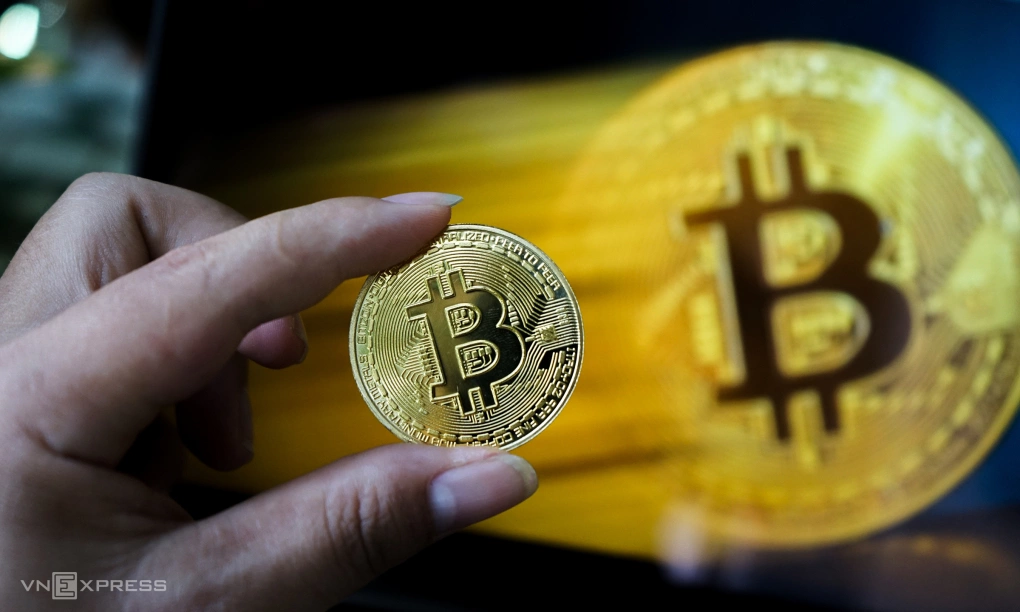A draft resolution piloting the digital and cryptocurrency asset market will be submitted to competent authorities in August. This resolution includes a pilot program for establishing digital asset exchanges.
To Tran Hoa, Deputy Director of the Securities Market Development Department (State Securities Commission, Ministry of Finance), said that under this draft resolution, regulatory bodies will grant greater authority to service providers to select cryptocurrencies for listing and trading on exchanges.
"However, we recommend selecting products with high liquidity and popularity in the market," Hoa said at a digital asset event last week.
There are currently over 19 million types of cryptocurrencies globally, according to data from CoinMarketCap. Bitcoin is currently the largest cryptocurrency in the world, reaching 2,260 billion USD, followed by Ethereum, XRP, USDT, and BNB.
Regarding Vietnam, Zane Nguyen, Co-founder and CEO of Kyros Ventures, a digital asset venture capital fund, believes that regulatory bodies need clear criteria based on liquidity and market access to select products for listing on exchanges.
According to Nguyen, millions of coins are created daily, but only a few have large trading volumes, such as Bitcoin, Ethereum, and USDT. "It's very easy to create or counterfeit a crypto asset. I believe that in the initial phase, Vietnam won't choose to list lesser-known cryptocurrencies," Nguyen said.
 |
A symbolic Bitcoin coin. Photo: Bao Lam |
A symbolic Bitcoin coin. Photo: Bao Lam
Sharing the same view, Mai Huy Tuan, CEO of SSI Digital, said that a digital asset allowed to be traded in Vietnam needs clear cash flow, a large holding community, and widespread application. In addition, tokens already listed in many countries with high capitalization and liquidity should be prioritized when piloting the exchange.
"Bitcoin and Dogecoin have low liquidity, but the number of investors holding them is very large," the SSI Digital CEO said, adding that all proposals for trading products on the exchange must be reported to the State Securities Commission.
According to data from CoinMarketCap, on 3/8, Bitcoin had a market value of approximately 2,262 billion USD. However, the trading liquidity in the last 24 hours reached over 18 billion USD, equivalent to 0.8% of its market capitalization.
However, Nguyen suggested granting the right to select digital assets to exchange operators to promote competition, similar to other countries. "If they are given the autonomy to choose trading products, the exchanges must be responsible to the market. If they perform well, investors will come; if they perform poorly, they will be eliminated. A license cannot be a shield for weak capacity," the Kyros Ventures co-founder said.
The Digital Technology Industry Law, effective from 1/1/2026, marks the first time Vietnam has a legal framework for digital assets. This helps protect investors from potential risks.
According to SSI Digital CEO Mai Huy Tuan, those who currently own cryptocurrencies are not required to transfer their assets from abroad back to Vietnam. However, if transactions such as buying, selling, or exchanging occur, investors must conduct them on licensed platforms in Vietnam.
"Crypto is not a physical asset like gold or a phone that can be easily transferred back to Vietnam. It exists on a digital, borderless platform," Tuan said. The SSI Digital CEO emphasized that after the exchange is established, investors who do not conduct transactions on licensed domestic platforms will be violating the law.
However, he also recommended that investors transfer their digital assets back to Vietnam in the form of custody to be protected by law. Custody is when an individual or organization entrusts their assets (securities, money, gold) to an organization (usually a bank or custody center) for management and execution of related transactions.
According to a 2024 Triple-A report, over 20% of the Vietnamese population owns cryptocurrency. Vietnam is also among the top three countries in the crypto adoption index according to Chainalysis data, with a prevalence 3 to 4 times higher than the global average.
Trong Hieu












